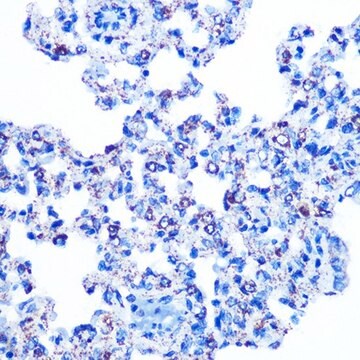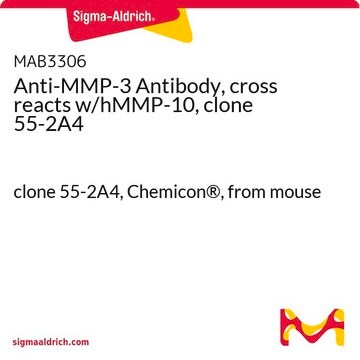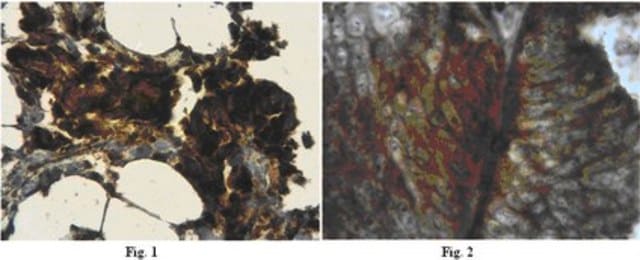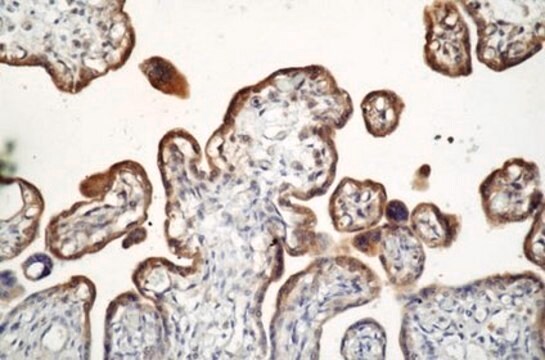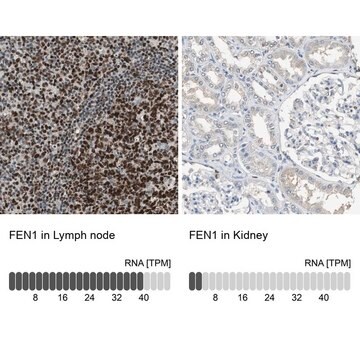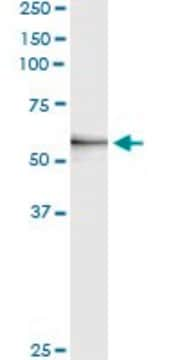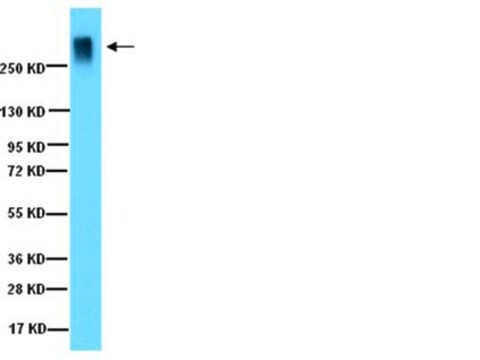IM36
Anti-MMP-3 (Ab-1) Mouse mAb (55-2A4)
liquid, clone 55-2A4, Calbiochem®
Select a Size
Select a Size
About This Item
Recommended Products
biological source
mouse
Quality Level
antibody form
purified antibody
antibody product type
primary antibodies
clone
55-2A4, monoclonal
form
liquid
contains
≤0.1% sodium azide as preservative
species reactivity
porcine, rat, sheep, human
should not react with
bovine, mouse, rabbit
manufacturer/tradename
Calbiochem®
General description
Immunogen
Application

Frozen Sections (see application references)
Immunoblotting (1 g/ml)
Paraffin Sections (see comments and application references)
Packaging
Warning
Physical form
Reconstitution
Other Notes
Stetler-Stevenson, W.G., et al. 1993. FASEB J.7, 1434.
Woessner, J.F. 1991. FASEB J.5, 2145.
Liotta, L.A. and Stetler-Stevenson, W.G. 1990. in Seminars in Cancer Biology, ed. M.M. Gottesman. Vol. 1(2), 99.
Legal Information
Not finding the right product?
Try our Product Selector Tool.
Storage Class
12 - Non Combustible Liquids
wgk_germany
WGK 1
flash_point_f
Not applicable
flash_point_c
Not applicable
Certificates of Analysis (COA)
Search for Certificates of Analysis (COA) by entering the products Lot/Batch Number. Lot and Batch Numbers can be found on a product’s label following the words ‘Lot’ or ‘Batch’.
Already Own This Product?
Find documentation for the products that you have recently purchased in the Document Library.
Our team of scientists has experience in all areas of research including Life Science, Material Science, Chemical Synthesis, Chromatography, Analytical and many others.
Contact Technical Service